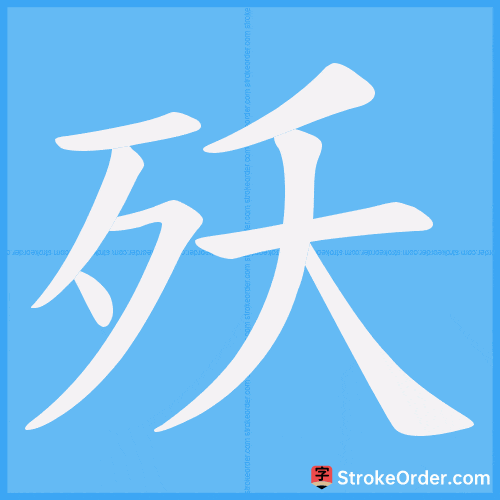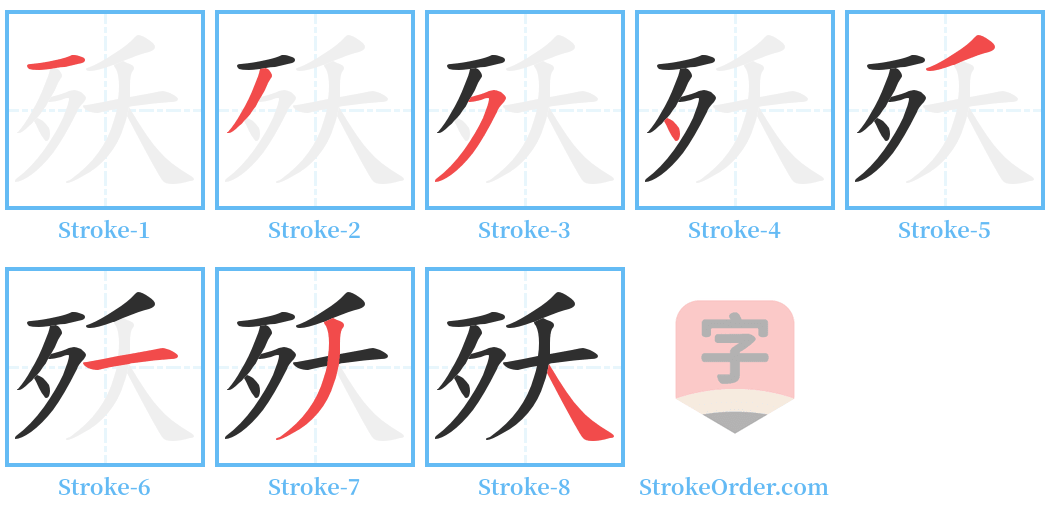殀 Stroke Order
Animated Stroke Order of 殀

Stroke Order Diagrams for 殀

Information of 殀
Pinyin
yāo
Radical
歹
Strokes
8 strokes
Usage
★★
Definition
殀:
1. Same as "夭" (to die young or prematurely).
同“夭”。
2. (verb) to die young; to die prematurely.
Example: In "玉篇·歹部," it states: "殀, to die; also written as 夭."
In "孟子·尽心上," it mentions: "A short lifespan does not occur twice; cultivate oneself and wait for it."
In "楚辞·屈原·离骚," it describes: "Although I strive to avoid death, ultimately I perish in the wilderness of feathers."
夭折,少壮而死。《玉篇·歹部》:「殀,殁也。亦作夭。」《孟子·尽心上》:「殀寿不贰,修身以俟之。」《楚辞·屈原·离骚》:「鮌婞直以亡身兮,终然殀乎羽之野。」
3. To harm or torture.
Example: In "礼记·王制," it states: "Do not kill embryos; do not destroy their lives."
In "病梅馆记" by Gong Zizhen, it mentions: "One must not make the people of the world devote their lives to harming and profiting from sickly or dying plums."
残害。《礼记·王制》:「不麛不卵,不杀胎,不殀夭。」清·龚自珍〈病梅馆记〉:「又不可以使天下之民,斫直、删密,锄正,以殀梅、病梅为业以求钱也。」